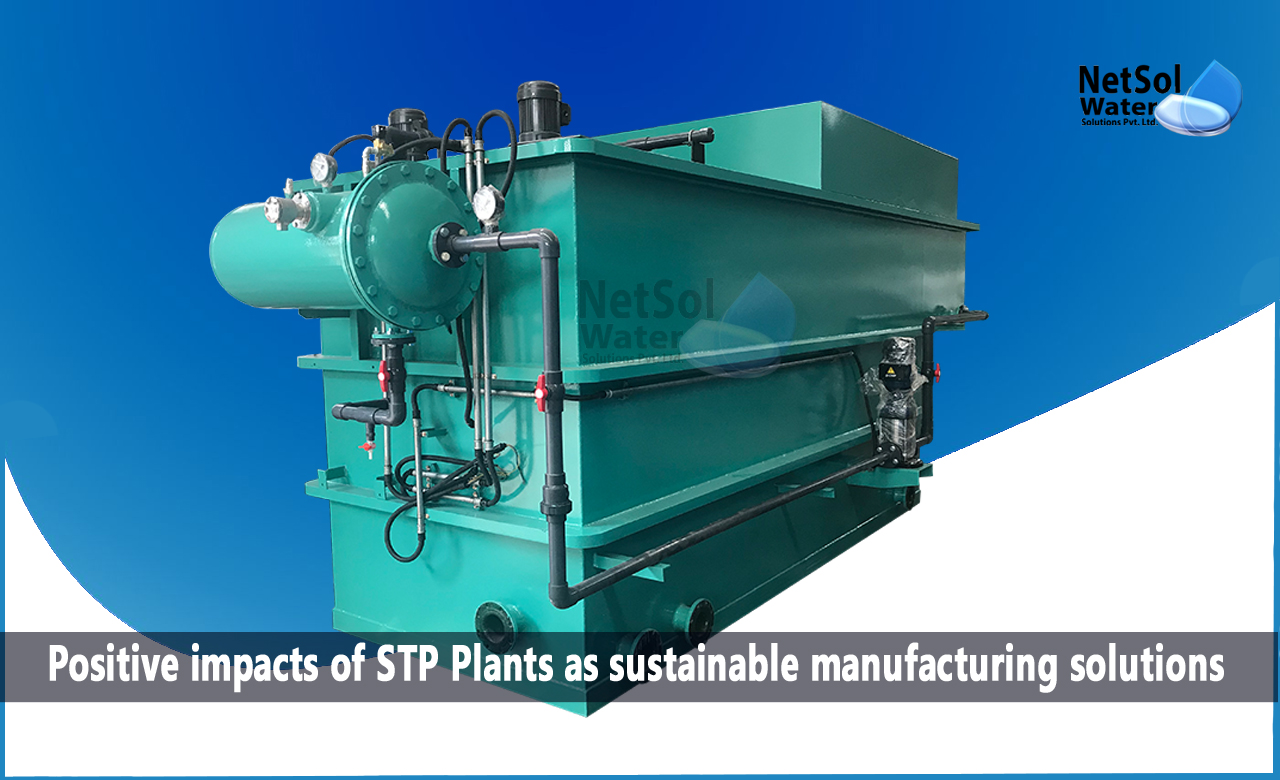Positive impacts of STP Plants as sustainable manufacturing solutions
As sustainability becomes a key priority for businesses across industries, manufacturing companies are actively seeking innovative solutions to reduce their environmental impact. In this pursuit, sewage treatment plants have emerged as a powerful tool for sustainable manufacturing. By integrating these plants into their operations, manufacturers can address water scarcity, minimize pollution, and improve resource efficiency.
In this blog, we will explore the benefits of sewage treatment plants as a sustainable manufacturing solution and the positive impacts they bring to businesses, communities, and the planet.
Water Conservation and Management
Water scarcity is a pressing global issue, and the manufacturing industry is a significant water consumer. Sewage treatment plants offer sustainable manufacturing solutions by optimizing water conservation and management. Here's how:
- Water Reuse: Sewage treatment plants efficiently treat and purify wastewater, making it suitable for reuse within the manufacturing process. This reduces reliance on freshwater sources, conserves water, and minimizes the strain on local water supplies.
- Closed-Loop Systems: Implementing closed-loop water systems enables manufacturers to recycle and reuse treated wastewater, reducing their overall water consumption. This approach ensures a more sustainable water supply while minimizing the need for freshwater intake and wastewater discharge.
- Efficient Water Management: Sewage treatment plants provide manufacturers with precise control over their water usage. By monitoring and optimizing water consumption, businesses can identify inefficiencies, reduce waste, and enhance their overall water management practices.
Environmental Benefits
The environmental advantages of sewage treatment plants are significant and can contribute to a cleaner and healthier ecosystem:
- Pollution Prevention: Traditional wastewater discharge can have detrimental effects on local water bodies and ecosystems. Sewage treatment plants play a crucial role in reducing pollution by treating wastewater to remove harmful substances before discharge, protecting the environment and preserving water quality.
- Ecosystem Preservation: By treating wastewater effectively, sewage treatment plants help preserve local ecosystems and aquatic life. Reduced pollution and the elimination of harmful contaminants contribute to a healthier environment and support biodiversity conservation.
Resource Recovery and Circular Economy
Sewage treatment plants provide opportunities for resource recovery, contributing to the transition to a circular economy model:
- Energy Generation: Anaerobic digestion processes in sewage treatment plants produce biogas, a renewable energy source. Manufacturers can harness this biogas to generate heat and electricity, reducing dependence on fossil fuels and lowering carbon emissions.
- Nutrient Reclamation: Sewage treatment plants allow for the extraction and recovery of valuable nutrients, such as nitrogen and phosphorus, from wastewater. These nutrients can be repurposed as fertilizers for agriculture, minimizing the need for synthetic alternatives and promoting sustainable farming practices.
Business and Economic Advantages
Adopting sewage treatment plants as part of sustainable manufacturing strategies offers several business benefits:
- Cost Savings: Sewage treatment plants can lead to significant cost savings in water consumption, wastewater disposal, and energy expenditures. Efficient resource management reduces operating costs and improves overall financial performance.
- Regulatory Compliance: Integrating sewage treatment plants ensures compliance with environmental regulations and wastewater discharge standards. This mitigates legal risks and safeguards a company's reputation.
- Stakeholder Engagement: Embracing sustainable manufacturing practices, including sewage treatment plants, enhances a company's reputation among customers, investors, and local communities. Demonstrating a commitment to environmental responsibility attracts like-minded stakeholders and can lead to increased customer loyalty and market differentiation.
Conclusion
Sewage treatment plants offer manufacturers a multitude of benefits, enabling them to embrace sustainable manufacturing practices. By optimizing water conservation, reducing pollution, and promoting resource efficiency, businesses can reduce their environmental impact, achieve cost savings, and improve their competitive edge. Moreover, integrating sewage treatment plants aligns with global sustainability goals, demonstrates responsible corporate citizenship, and contributes to a greener future. As manufacturing companies increasingly prioritize sustainability, sewage treatment plants are set to play a pivotal role in shaping the industry's path towards a more sustainable and environmentally conscious future.
Netsol Water is Greater Noida-based leading water & wastewater treatment plant manufacturer. We are industry's most demanding company based on client review and work quality. We are known as best commercial RO plant manufacturers, industrial RO plant manufacturer, sewage treatment plant manufacturer, Water Softener Plant Manufacturers and effluent treatment plant manufacturers. Apart from this 24x7 customer support is our USP. Call on +91-9650608473, or write us at enquiry@netsolwater.com for any support, inquiry or product-purchase related query.



